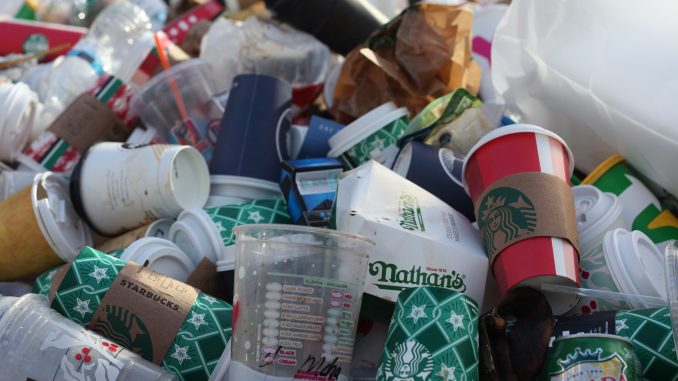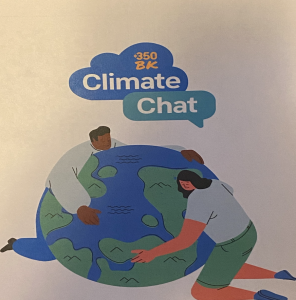
BY ANDRE RICKMAN
On Feb. 9, community members and climate activists gathered at the main branch of the Brooklyn Public Library to take part in 350 Brooklyn’s Climate Chat.
350 Brooklyn was founded in 2015 by a small group of citizens who had worked on the People’s Climate March back in 2014. The meeting started with a simple yet impactful “ice breaker” question.
“What is your name and your favorite body of water?”
The answers varied from Brooklyn, East Flatbush to the Upper West Side. The point of the exercise was to get to know one another and learn what body of water holds a special place in each other’s hearts.
Mimi Bluestone, part of 350 Brooklyn’s steering committee, reminded neighbors in attendance at the meeting of the important work they’re trying to do.
“We want to bring down the level of greenhouse gasses to the utmost 350 years , considered the most upper safe limit of life as we know it,” Bluestone said.
Bluestone is trying to get citizens to think about their basic needs met without the excess of fossil fuels in the area.
The forum’s theme during the meeting was putting the “I” into Climate Change, on the small, yet tangible things citizens can do to reduce their carbon footprint on this Earth.
The meeting aimed to give an intersectional lens on how climate and the people affected play a role in how to address these underlying issues.
Some examples include on the fiscal side – like how to monitor organizations and their spending.
“Some non-profit organizations such as As you Sow and Bank Green can measure what your bank is investing in as a contributor or a counteractor,” said Laura Cook, a volunteer with 350 Brooklyn.

According to the Marketplace.org, ,“America’s biggest banks, like JPMorgan Chase, Citigroup and Bank of America, use this corporate cash to make loans that fund the expansion of the fossil fuel industry, sometimes through projects that might emit greenhouse gasses for decades.”
Another topic the group discussed was eradicating the prison system. An example includes the proposed state level legislation to tear down Rikers Island and replace it with a more eco-friendly outlook on the 413-acre land.
“We are a part of a Coalition called Renewable Rikers, which has the goal of closing down Rikers as a prison, and using that Island as a solar farm and a laboratory for renewable energy,” said Bluestone.
According to the New York City Council,“ legislation to transfer the land, buildings and facilities of Rikers Island from the Department of Correction (DOC) to the Department of Citywide Administrative Services (DCAS).”
This legislation comes ahead of the August 31, 2027 deadline that prohibits Rikers Island from being used for incarceration.”
The meeting allowed residents and citizens concerned about climate change to join in on the conversation about what could be done in both Brooklyn and across New York City.
“By working on 350’s podcast team ( People vs. Fossil fuels ), I’m providing opportunities for people to learn about the people and organizations that mitigate climate change in their own time and convenient way,” said Brynn Fuller Becker, Marketing and Communications lead for 350 Brooklyn.
The meeting ended with community members sharing what they learned and what their immediate goals are to help preserve the Earth. Answers varied from reusing textiles instead of contributing to landfills, and reselling empty plastic bottles.
